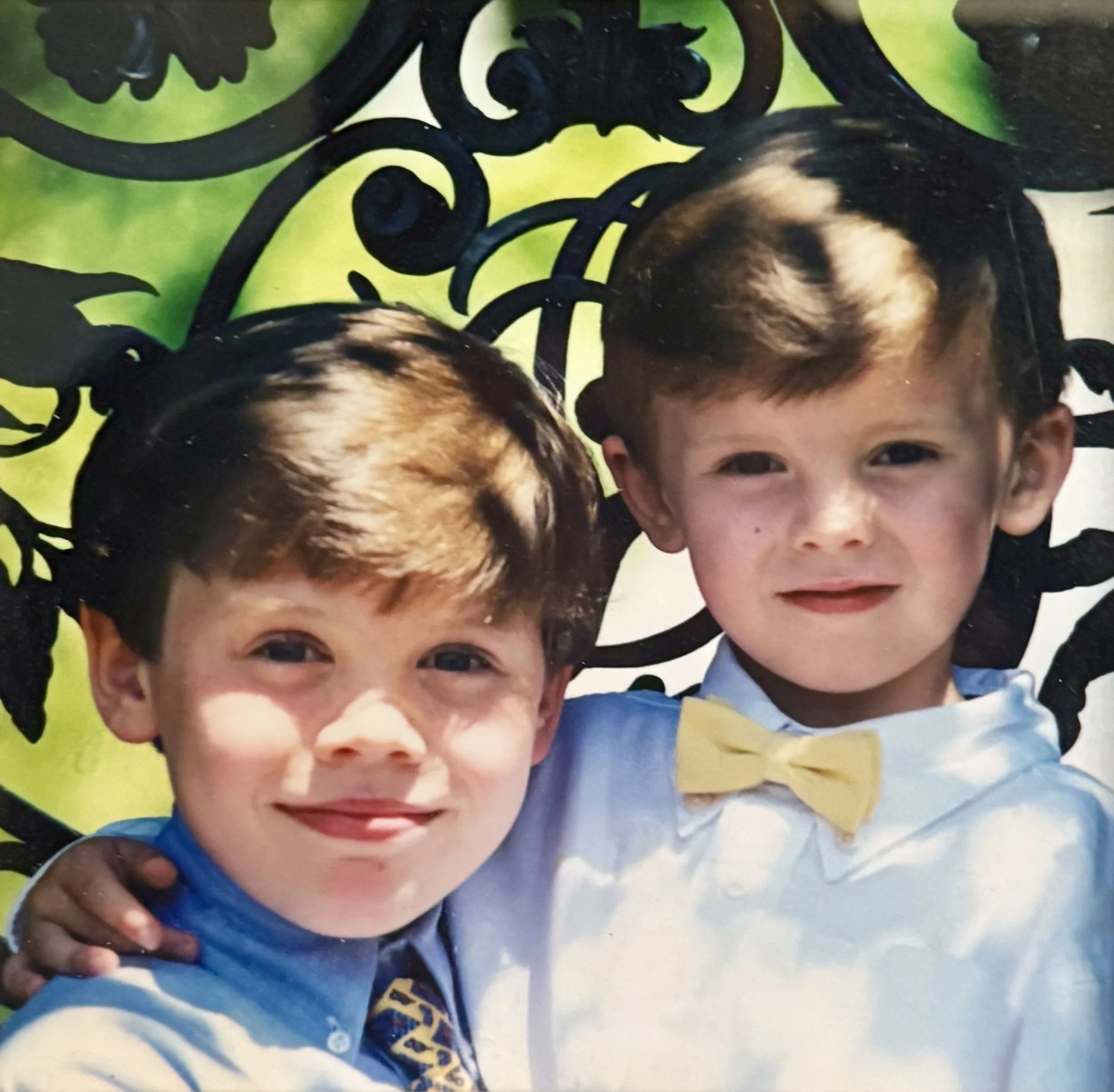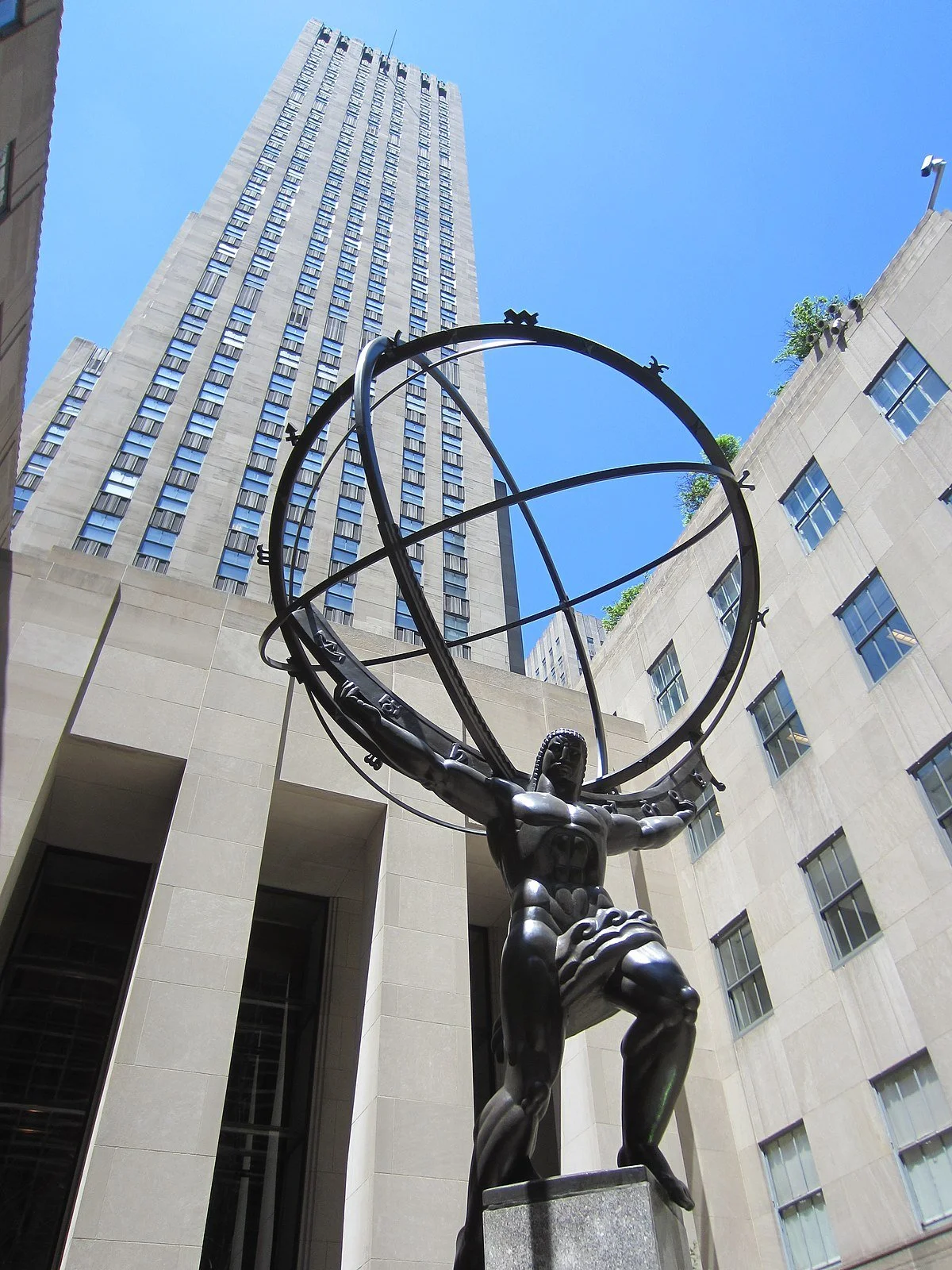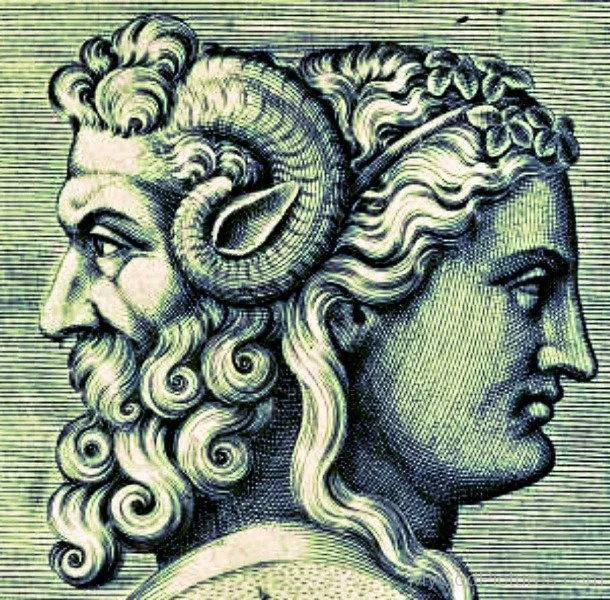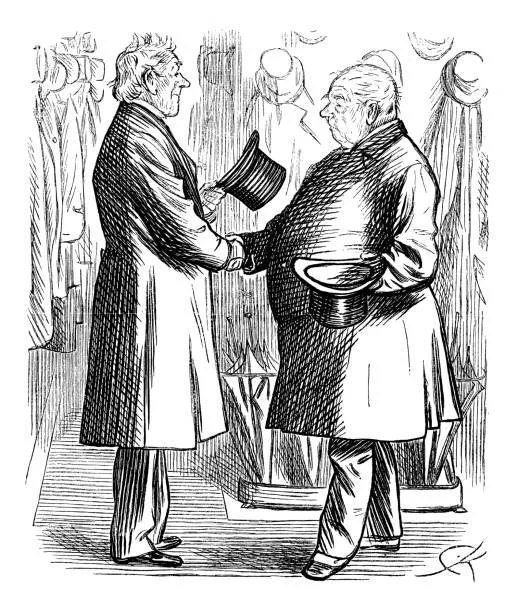None of Us Are Whole
n.b. Per Twitter, “The key to happiness: avoiding the treadmill of high expectations turned disappointing realizations that pale in comparison to personal aspirations.”
Above: Obsessive Compulsive Disorder (Or: Much Ado about Nothing. Or is it? What if it’s Something? Am I sure? And so it goes…♻️)
I once read that the act of writing turns one’s liabilities/limitations into assets/advantages. I, for one, have taken this wisdom to heart.
As longtime readers know, White Noise often touches on my personal pitfalls, irksome demons, and malicious maladies. It frequently covers the travails of Tourette, the syndrome that—quite literally—shakes me, but one that I cannot seem to shake.
Because I am self-conscious human, these topics fall squarely in the camp of “things rather not discussed.” However, I have found it almost a rule that the less you want to discuss something, the more you must; not only because of the potential for personal catharsis but also for your ability to touch the lives of others.
As C.S. Lewis once so eloquently wrote in The Four Loves:
Friendship arises out of mere Companionship when two or more of the companions discover that they have in common some insight or interest or even taste which the others do not share and which, till that moment, each believed to be his own unique treasure (or burden). The typical expression of opening Friendship would be something like, "What? You too? I thought I was the only one."
It is when two such persons discover one another, when, whether with immense difficulties and semi-articulate fumblings or with what would seem to us amazing and elliptical speed, they share their vision - it is then that Friendship is born. And instantly they stand together in an immense solitude.
One such person with whom I stand “together in an immense solitude” is Wesley Braden. His LinkedIn byline—Reject Cynicism. Bring Hope.—should tell you all you need to know about the type of person he is.
In Wes, I see a lot of myself (or, at least who I aspire to be). He is a man of genuine kindness, deep curiosity, and infectious positivity; the type of friend you smile with on the brightest of days and rue alongside on the darkest of nights.
His writing, like mine, comes from a deeply personal place. We both suffer from maladies of the mind and share a common comorbidity: Obsessive Compulsive Disorder.
If a picture is worth a thousand words, a video—by definition—must convey a great many more. I mention this, because no work of art better encapsulates the invisible pain of OCD than that of the It Feels Like Project. In its own words, “This project utilizes the power of the phrase ‘it feels like’ to further general public appreciation for the severity of invisible conditions and their accompanying pain through video art enactments.” Below is the project’s raw, searing portrayal of OCD; I highly encourage you to watch its accompanying video art enactment as well.
a ritual,
one I want nothing
to do with but can’t
escape.
the thoughts come over me
like a dark, sticky substance.
the more I try to push them away,
the more they get stuck to me.
I offer all this as preamble because Wes intimately discusses OCD in the following excerpt from his debut novel, None of Us Are Whole.
Without further ado, I cede the digital floor to Wes.
I wrote this book because I had to. I am determined to use my suffering with OCD to bless people with OCD by representing them in art, and I also hope to expand the empathetic capacities of folks that do not have OCD by presenting them a realistic depiction of what it is like to live with OCD. This novel is my best attempt at doing so.
None of Us Are Whole is the fictional journal of Walter, an early 20s college student from the Chicago suburbs who must confront the fact that he is either capable of unspeakable evil to the people around him or he is slowly beginning to lose his grasp on what is real and what is imaginative.
After several harrowing episodes that push him to a breaking point, Walter is diagnosed with OCD, which dramatically alters his perception of himself and his understanding of mental health. Walter processes his diagnosis with the help of his journal, his therapist, his psychologist, and his elderly neighbor, Ethel. Along his journey, he uses his journal to espouse his thoughts, insights, fears, and internal dialogues.
Below is one of Walter’s first journal entries from an early chapter of the book. I hope you enjoy it and find it helpful.
A note: the excerpt below is urgent, raw, and pleading- as is the rest of the book. To read the book is to sit at the banks of Walter’s stream of consciousness.
To anyone who does not inhabit my mind, I have a bright future.
To those living in Reality, not my garbled and glitching reality. Whatever Reality means. I’m no longer convinced that I inhabit the reality that is generally considered standard- for sake of clarity I guess I can call the reality that most people inhabit everyday “Reality.”
Let me try again to explain it for myself- and you.
See, what I’m calling Reality is the shorthand for the version of life most people experience most of the time. What is “normal.” The platform that all of our institutions are built on. The lowest common denominator of social existence. What we all assume will persist as long as we are alive. What we plan our lives around.
For a long time my reality was the same as Reality. There was no distinction between the two. What that means is that essentially my lived experience, my reality, happened in Reality. Long summer nights in Middle America where I eagerly lapped up watermelon juice from my Kirkland signature paper plate before peeling off the vinyl chair to race after the other kids and play pretend this or make believe that. Trying to stay up late to impress my parents’ friends with my knowledge of state capitals and my spelling words before trudging off to bed and pretending to be asleep as I watched the shadows tango with the golden light leaking through the slit below my door. Getting invited to my first Chuck E. Cheese birthday party even though I didn’t have many friends since I didn’t know much about the RugRats or the Cubs or how to play the same games everyone else played on their GameBoy Color.
Trying hard to pay attention in class because Mrs. Addle seemed to care a lot about what she was teaching and sometimes I saw her eyes get wet when the boys in the back traded Yu-Gi-Oh cards instead of learning about the phases of the moon.
Choosing to become socially adept in high school, even if social ease didn’t come that naturally. Because that's possible, at least as long as you are living in Reality with everyone else. As long as you have the same reference points, you can find common ground and build relationships to other people.
I could learn how to make people like me by using my after-school job selling fudge as a social laboratory to test conversational tactics and note what made people feel comfortable and like me. Becoming Homecoming King Senior Year because I could make people feel that I liked them and was listening to them. And often I did and was. I still do. When I feel myself. When I’m living in Reality. When my reality is Reality.
Even when I didn’t have friends to turn to, I had my family. Strong, supportive, competent family that worked hard to give me no excuse for failure. No excuse not to live a productive life that used my gifts and talents to positively impact those around me. And my family members were not the only ones nudging me, pruning me, tending me along the way as I matured. I had an ecosystem built around me, nourishing me.
My Polish music teacher Pavel who knew that a disciplined appreciation of classical music would bleed into a more nuanced and emotional perception of the world at large. My AP Latin teacher Gene who wrote me a stirring recommendation letter to get into Middlebury. My empty nester neighbor Alice who told me stories of her time at Middlebury and how reading Aquinas and Sartre and their friends painted the world with colors she hadn’t known existed. My boss at Bucky’s Fudge who kindly confronted me about my aversion to confrontation.
None of these people knew exactly how their contribution to my life would shape me. None knew who I might become or what I might do. But each of them believed (or chose to believe) that I was a worthy enough cause that others would choose to contribute to me and mentor me. I was the kind of person who could succeed in Reality. So, they invested, believing that eventually through the alchemy of compounding interest I would become a success in Reality. A success of at least one (and hopefully more than one) kind- financial prowess, community rootedness, paternal love and familial stability, the like. A success. In Reality.
Now that’s gone.
In just a couple weeks everything has changed. The future, the potential. Because I’ve either lost touch of Reality, or I’m a disgusting and wretched person who can do unspeakable things. Who has done unspeakable things. I’m gross or I’m crazy. Perhaps both, really. The two for one special. Darling. Lovely.
And although to think my own future is over is indeed painful, to think that I’ve let down the people that poured into me and the people my benefactors assumed I would mentor down the line is like dancing in flames. I can’t bear it. I’m feeling sick just thinking about it.
I’m not sure what’s happening to my emotions or my perception of the world. I slingshot between feeling normal and feeling that I’m a despicable person who deserves a fall from grace and a closing of all opportunities. I go from being overwhelmed by the beauty of the world to feeling like even the smallest process or rhythm of the world is too much for me to endure. I live only in extremes, the center cannot hold.
One moment I’m reveling in the banal beauty of the world, soaking in beauty that I typically would not notice. The next moment I’m a crumpled, non-functioning version of myself that I don’t recognize- and I have to fight extremely hard to convince the people around me that I’m my normal self. I can’t hold it all anymore, it's all too much. I’m afraid. I don’t know why my mind meanders between these extremes. I don’t know why I can’t control the dark thoughts. I’m not sure if the dark thoughts are reflective of real life or not. And it feels like my scale for judging what is true and what is false is constantly shifting and morphing. Sometimes I feel like I see Reality, and sometimes I can’t fathom being able to operate in the same world as the people around me.
I’ve been thinking lately that we talk about reality and Reality interchangeably. That it is quite a disservice to ourselves and to the concepts themselves, and I want to think and write a little bit more about the topic. To at least clarify to myself what I think I mean. See, reality and Reality are simply not synonymous and to refute this distinction and assume they are the same, or at least fairly interchangeable (as has been the modern preference it seems) cheapens the idea of reality by limiting it to one permutation of itself. Like looking at a kaleidoscope but refusing to tumble the beads. Like insisting 200 Legos can only be assembled in one configuration. Like assuming Spam tastes good to everyone’s taste buds. Those ideas are ridiculous, just like thinking that Reality is reality is ridiculous.
Because Reality is just one reality. Reality is just one possible combination of glass and beads in the kaleidoscope. It is one of an infinite number of configurations of a box of legos. It is one of many arrangements of taste buds. We assume everything sees and feels this Reality and so we build our norms and institutions as if Reality was reality for every person. But reality is elastic. It can stretch and expand, teasing us with fantastical future versions of our life experience that seem so imminently sure to be existent. A future world in which we live in a Mid Century Modern Wisconsin lake house decorated with Herman Miller period pieces is deliciously close when the founder of eBay emails us back that he likes our prototype and would like to make an angel investment. Likewise, it can contract to such claustrophobic minutiae that we assume that leaving the house to go on a date with another person is a physical impossibility much like suspending the Earth’s rotation.
Maybe I exaggerate. But the principle seems to stand on some level. We all get this to an extent in general right? We understand that tastes and smells that are nice for me are not nice for you and the like. Subjectivity and Objectivity exist. But I think we show our lack of empathy when we assume the majority reality that we’ve mass produced and commodified as Reality is the only reality.
I’d never thought about this until I had to.
Until I couldn’t trust myself to be in the same Reality everyone else seemed to effortlessly occupy.
Until my reality began to bubble and morph into forms that shocked and scared me.
Until I saw who I could be and what I could do.
There is a kind of loneliness in swimming in a whirlpool of constantly changing realities while everyone you know stands on the rock solid footing of Reality.
I wouldn’t wish that loneliness on anyone.
If you would like to receive more updates on the book, please subscribe to its newsletter here. If you have questions about OCD, leads on literary agents/publishers, or just want to say hi: wesleybradeniv@gmail.com










